Yulia Skripal’s TV interview shows ‘one in a million’ recovery from nerve agent attack, says chemical weapons expert
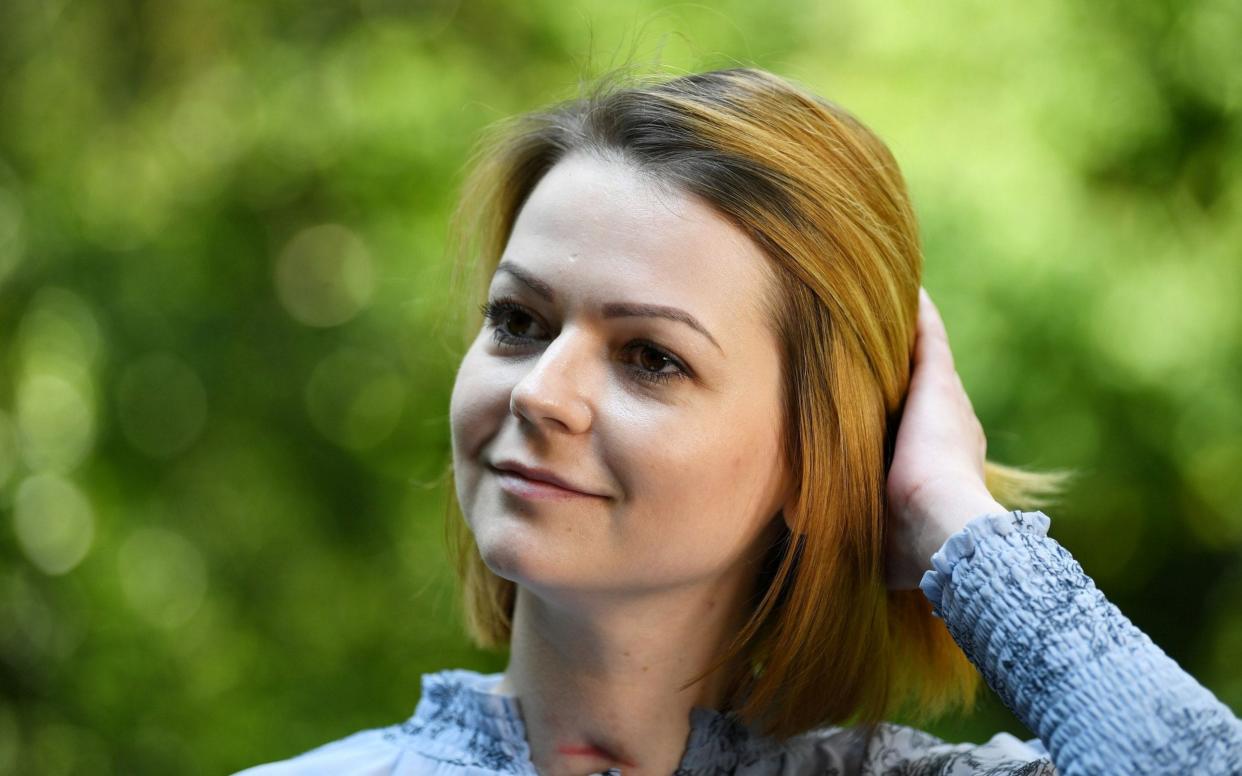
Yulia Skripal’s television appearance showed her “one in a million” recovery after being attacked with one of the deadliest nerve agents less than four months ago, according to a leading chemical weapons expert.
The 33-year-old went before the cameras yesterday to talk for the first time about the aftermath of the assassination attempt on her and her father, Sergei, in Salisbury in March.
During the broadcast she described the “devastating” toll the attack had taken on her and described the medical treatment to keep her alive as “invasive, painful and depressing”.
She also appeared with a deep scar on her neck, which is thought to have come from a ventilator being inserted to help her breathe while in intensive care.
Yet Ms Skripal said she and her father, who was discharged earlier this month, were “so lucky to have both survived this attempted assassination” and paid heartfelt thanks to the staff at Salisbury Hospital.
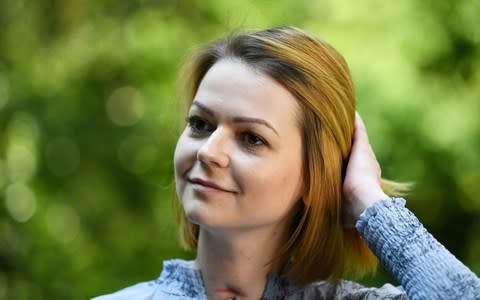
The former commander of the UK's chemical, biological, radiological and nuclear defense (CBRN) regiment and Nato's CBRN battalion, Hamish de Bretton-Gordon OBE, has told the Telegraph said her physical recovery is remarkable and came against overwhelming odds.
He also described how a combination of the botched delivery of the novichok nerve agent and the coincidence that Mr and Ms Skripal were just miles from medical staff highly trained in chemical attacks conspired to save their lives.
‘A million to one’ recovery
One of key factors in the Skripals being able to survive was the manner in which the novichok agent was administered.
It is thought that it was smeared on Mr Skripal’s door handle, meaning that their exposure would have been mainly through contact with the skin.
Nerve agents can kill in seconds if breathed in. Describing the effect inhaled nerve gas has on its victims, Mr de Bretton-Gordon said: “In my personal experience, seeing people die in Syria, they are almost frozen to the spot as their nerves die so quickly.”
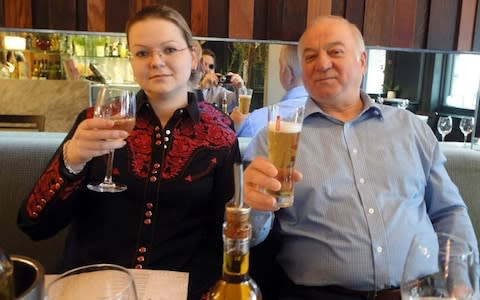
Nerve agents take much longer to absorb into the system dermatologically, with some not entering the body for as long as 48 hours.
It’s thought that the effect of the nerve agent could have been further diluted if the Skripals washed their hands or wiped them on their trousers after coming into contact.
Mr de Bretton-Gordon said the would-be assassin could have chosen to administer the nerve agent in an indirect manner to give them time to make a get away.

But this delayed the effects of the nerve agent, giving medics a greater window to save the Skripals lives and limit the damage.
He said: “It is a one in a million chance of survival. If you look at VX in Kuala Lumpur with Kim Jong-nam, he was dead in a few minutes”.
Super nerve agent
This window gave the Skripals a chance to survive contact with one of the newest and deadliest nerve agents, the Russian-created novichok.
Nerve agents kill by destroy the human nervous system through binding with an enzyme called acetylcholinesterase (AChE), which affects the synapses.

This eventually causes the brain to stop sending signals to the respiratory system. Victims then start to convulse before losing consciousness and asphyxiating.
The time it takes a nerve agent to bond irreversibly with a AChE, known as the “aging” time, varies considerably between different strains.
Sarin can take up to two hours whereas the nerve agent soman can take as little as two minutes.
The usual way to stop a nerve agent is to inject victims the drug atropine, which blocks it from fusing with AChE.
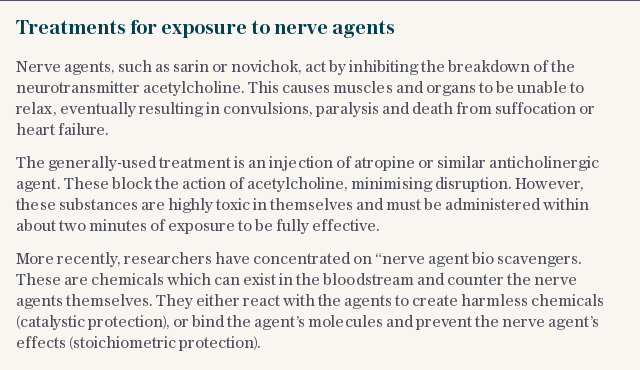
Little is known about novichok, which was developed in Russia in the 1980s and 1990s, but Mr de Bretton-Gordon said it would have been designed to have a very rapid aging time.
He said: “It is a super nerve agent. It is very persistent and very complex, so I would assume it is very quick.
“The Russians have learned everything from sarin and VX and put it into novichok.”
Medical care
If the manner of the attack bought Yulia Skripal and her father invaluable time, a second critical element in their recovery was the fact they were found two miles from one of the world’s leading hospitals for treating chemical attacks.
As Salisbury Hospital is only a eight miles from the UK’s defence laboratory, Porton Down, it has highly trained staff ready to treat patients exposed to chemical and biological agents.
Mr de Bretton-Gordon said: “A couple of medics on duty (when the Skripals were admitted) had recently completed the chemical countermeasures course at Porton Down.
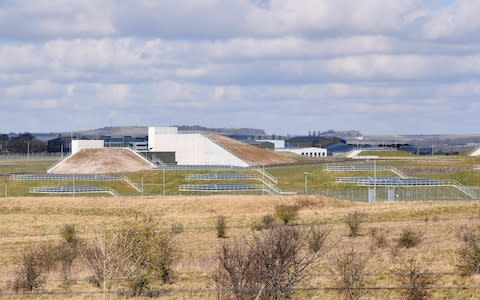
“The fact there were these people on duty meant they quickly called it as a nerve agent.”
Mr de Bretton-Gordon said he understood that the medical staff at Salisbury hospital didn’t use atropine and were able to stablise the Skripals to allow their bodies to start to heal.
“It was a call at the time,” he said, “as if you inject it and they don’t have nerve agent, atropine then damages the nerves.”
If a nerve agent’s harmful effects are stopped at an early stage the body can start to regenerate AChE on its own.
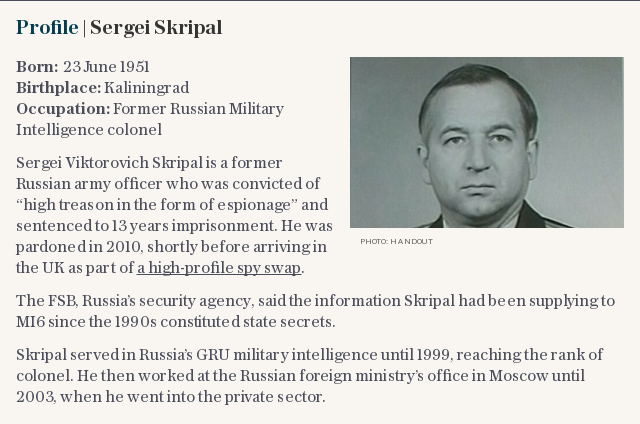
As such, Yulia Skripal was in a coma for 20 days before being gradually brought out. Her medical treatment would have then centred on supporting her weakened body as it healed itself.
“It’s a case of just keeping them alive,” said Mr de Bretton-Gordon “The tracheotomy, I assume, was where they were on a life support system. Once the nerve agent stops having an effect the body starts to repair itself.
“I am sure they are on a whole range of drugs, that are probably quite debilitating, as they would be susceptible to infection. Their bodies have been very weakened.”
After effects
One of the greatest concerns for the Skripals was that they would emerge from their comas brain damaged.
Yet Yulia Skirpal appeared to be lucid and alert when she went before the cameras yesterday, which augurs well for her recovery.
Mr de Bretton-Gordon said: “To me she seems to be in a pretty good state mentally, so the long term prognosis seems good.”
The long term effects on the Skripals are still unknown and other victims of nerve agent attacks have suffered serious problems for years after.

Hiroyuki Nagaoka, who was attacked with VX agent by the Aum Shinrikyo cult in Japan in 1995, last year told Japanese public broadcaster NHK that he still suffered numbness on the right side of his body and needed oxygen tubes to assist his breathing.
And although Ms Skripal appears to have made a remarkable recovery physically from the nerve agent attack there could still be psychological ramifications, such as post traumatic stress disorder.
For Mr de Bretton-Gordon the fact that Ms Skripal was well enough to appear on TV less than four months after being attacked with a highly lethal nerve agent down an extremely fortunate set of circumstances.
“If it happened anywhere else in the world I am sure they would be dead,” he said. “But they had expertise on the ground, Salisbury Hospital is designed to treat chemical attacks and they had the world’s best scientists nearby at Porton Down.”

 Yahoo News
Yahoo News 
